WHO Pandemic Treaty Major Vote Monday, In TWO Days! US Bombshell That Could Change The Game, Maybe For The Worse - URGENT TO ACT NEXT 2 DAYS!
Deep dive into the legal state of the Treaty and what we can still do about it:
First, Todays INVITE: IOJ's Private Community 3rd Webinar - Help Us Stop The Treaty Vote - Saturday November 9, 2024, 12:00pm-1:00 Eastern (NY)
This will be the conscious communities third meeting together with you all! Join us!
Mission of todays meeting: Stop The W.H.O. 12th Special Session For The Pandemic Treaty to be voted in early by December! All countries should come!
This is the last weekend before the countries decide on a special December session to vote in the Pandemic Treaty!
There is ONLY Saturday (Today), Sunday (Tomorrow) and then they will vote on Monday, Nov 11 to decide if the treaty can go forward by next month to COMPLETE! YIKES!
If they vote yes, the Treaty will get a vote in December and could easily be adopted WAY BEFORE CHRISTMAS!
Sign up for today’s CRITICAL URGENT MEETING - WE HAVE A PLAN & MATERIALS FOR YOU TO STEP UP IN TIME TO BE HEARD (We are having a weekend hashtag blitzkrieg - all hand needed on deck this weekend! It will be easy & effective - watch us win this URGENT and CRITICAL battle)
and make sure to RSVP for the next meeting in 2 weeks On November 23, 2024!
Notice: The bottom of this page has more very easy things you can do to help stop the treaty, including that you can simply make a few second video and/or share the pandemic treaty toolkit of materials in your spare time!
Sign here NOW to STOP the Treaty! Send to Tedros, Ambassadors and ALL delegates of the WHO pandemic treaty negotiations!
Detailing Why The Pandemic Treaty Should Not Be Fast-Tracked Under US Pushing Article 21—or Passed at All
Sign & share the demand to not hold a December early vote if you have not already signed!
Show them what you’re made of!
Link: https://whowatch.org/stopwhopandemictreatynow
We have a hearing on Monday Nov 11 to stop WHO authorized mRNA shots and could REALLY use more support for legal fees! Thanks! Lets shut this BS down!
The WHO’s Intergovernmental Negotiating Body (INB) is meeting Nov 4-14 to discuss the pandemic treaty, which could be adopted soon.
Here’s what’s planned:
Friday, Nov 8: INB will review the first week’s progress and set plans for the next week.
Monday, Nov 11: If there’s agreement on the draft treaty, INB will discuss holding a special session of the World Health Assembly (WHA) to finalize it.
Thursday, Nov 14: If a special session is arranged, INB will work on a resolution to adopt the treaty and plan further actions.
Friday, Nov 15: If no special session is called, INB will discuss next steps based on progress.
The INB is working on foundational chapters of the treaty, with informal discussion slots allowing member states to talk through unresolved areas.
This week’s sessions could determine if the treaty moves forward for official adoption.
UPDATE: So far only a segment of the first day Nov 4, 2024 has been released and the remainder negotiations are apparently held in secret.
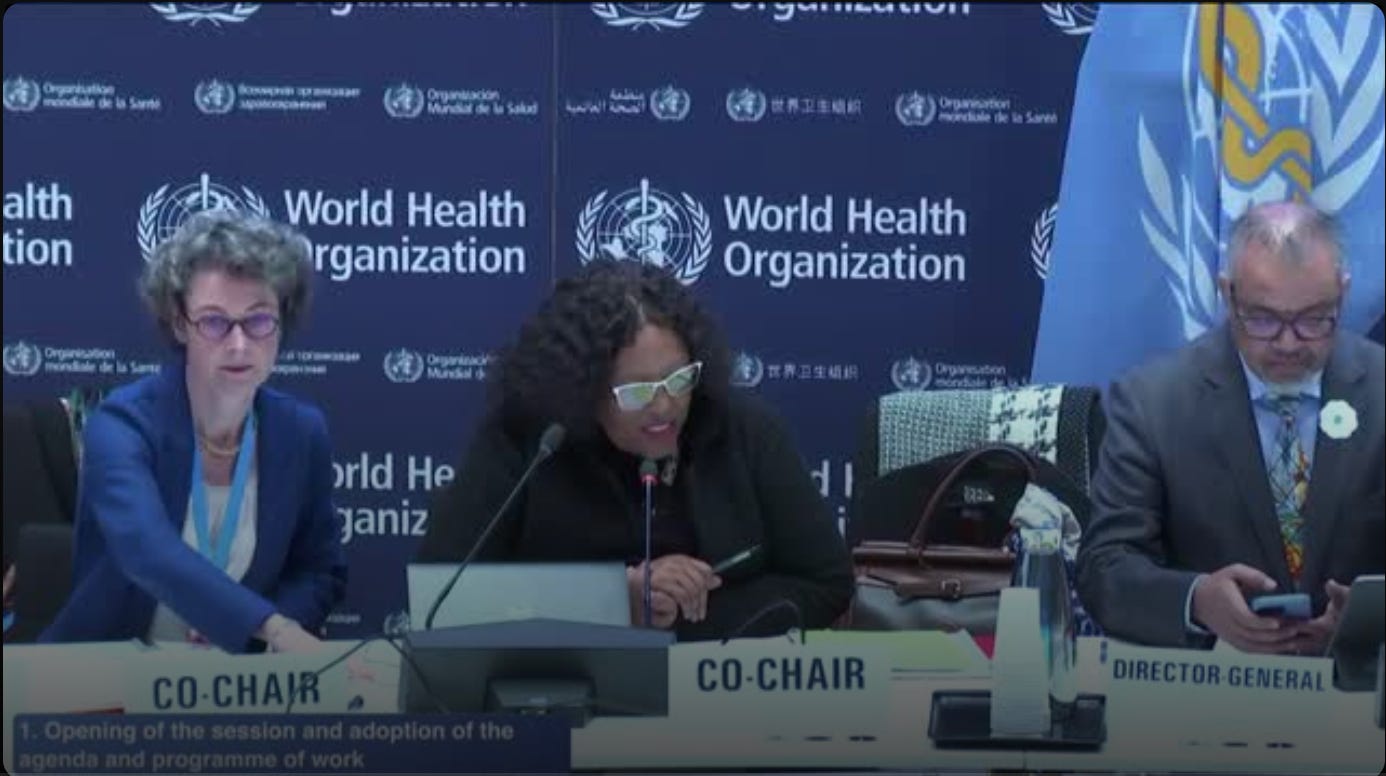
WHATS GOING ON SO FAR: On November 4, 2024 the US dropped a bombshell in the mix and firmly requested fast tracking the treaty under Article 21 of the WHO Constitution, rather than use Article 19.
This has been a debate between countries for some time, precisely which article to use, should it be under Article 19 or 21 of the WHO Constitution, but the US just finally jumped in to pressure for the Article 21 route, in order to vote on it next month!
US wants their damn treaty dammit!
The new push by the United States to process the World Health Organization’s (WHO) global health treaty under Article 21 of the WHO Constitution, aiming for completion by the end of the year, raises red flags on many fronts.
Speaking of red flags, In the following clip Tedros commands the States to take action against what he claims is: “the serious challenge posed by anti vaxxers and, I think we really need to strategize how to push back because vaccines work”…
Back to the pandemic treaty that could COMPEL EMERGENCY NOVEL VACCINES:
Article 21 allows the World Health Assembly (WHA) to establish binding international regulations without the full national ratification process required by Article 19. This “fast-track” approach would bypass critical checks and balances, leaving member states bound by new global standards without the democratic approval they typically rely on.
Such a sweeping treaty, with vast implications for public health, commerce, and human rights, should never be rushed—and IOJ honestly believes it really shouldn’t pass at all. The WHO and US’s push for speed has sidelined dissenting voices and excluded key stakeholders, such as Interest of Justice who was ignored and excluded by WHO, even after attending every WHO hearing for the Treaty, creating a manufactured consensus that conceals substantial opposition from experts and the public.
Speed at the Cost of Transparency and Accountability
Using Article 21 to push through a comprehensive health treaty is an unprecedented move. Article 21 was intended for narrowly focused, emergency regulations—such as quarantine measures or international labeling standards—not for expansive treaties that affect health systems, trade, and human rights. The decision to use Article 21 bypasses national legislative processes, removing the vital checks that give citizens and their representatives a say in binding international agreements.
This fast-tracking effectively denies the public and experts the opportunity to fully examine and debate the treaty. It’s hard to see this as anything other than an attempt to avoid the scrutiny that would come with a more transparent process. By the time any opposition could make itself heard, the treaty could already be binding, leaving little room for meaningful pushback.
Excluding Experts To Manufacture a False Consensus
The WHO has consistently sidelined dissenting health experts throughout this treaty’s development. This exclusion has created the appearance of agreement among health authorities and nations, though many professionals in medicine, public health, and bioethics strongly disagree with the treaty’s provisions and its potential impacts. Critics have warned that these provisions could infringe on individual rights, place burdensome financial obligations on nations, and grant the WHO unchecked authority over local health policies.
By excluding these voices from the conversation, the WHO has crafted a false consensus that doesn’t reflect the diversity of expert opinion on these critical issues. The WHO’s refusal to engage with dissenting perspectives—particularly those questioning the treaty’s potential overreach—speaks to a deeper problem with transparency and accountability within the organization.
A treaty with such far-reaching impacts on national health regulations and personal freedoms deserves open, rigorous debate, not rushed approval behind WHO’s closed doors.
Handing Over Health, Commerce, and Rights By Treaty
What’s most troubling is the extent to which this treaty could influence not only health policies but also commerce, our rights and our liberties. Should it pass, the treaty would establish new regulations on international health and trade, mandating nations to adhere to WHO standards on matters that may include vaccine procurement, quarantine protocols, and possibly even labeling of health-related products. By creating rules that countries are bound to follow without proper regulatory or participatory democratic oversight, the WHO could impose obligations that strain economies, influence trade, and interfere with national health decisions.
Furthermore, it is important to note that under Article 21’s framework, regulations automatically take effect unless a country opts out—creating a one-size-fits-all solution that may disregard the unique social, economic, and cultural needs of individual nations, in particular unethically bypassing many Member States stricter Regulations for Biomedical Research. With minimal accountability to the people affected by these policies, the WHO is essentially positioning itself as a global health regulator and vaccine middleman emergency products peddler, otherwise considered an EUL profiteer with sweeping authority over its member states once the DG arbitrarily calls a PHEIC public health emergency of international concern or pandemic.
The Director-General’s Unchecked Authority
Perhaps the greatest concern lies in the powers that could be concentrated in the hands of the WHO Director-General. If this treaty is passed under Article 21, the Director-General would have unparalleled authority to dictate health measures that could be imposed globally without full accountability. This already did not go well the past few years if anyone noticed.
In reality, this level of control, combined with the lack of input from dissenting experts, opens the door for WHO leadership to make decisions that may favor its own agendas over the welfare of the people it claims to serve. Member states could find themselves financially burdened by WHO’s requirements, with little recourse to challenge or modify mandates that don’t serve their citizens’ best interests.
This Treaty Must Not Be Allowed to Pass! Stop the Treaty!
The risks posed by fast-tracking this pandemic treaty are too great to ignore. Rushing through a treaty that has yet to be publicly and democratically vetted by all member nations does a disservice to the very people and nations it aims to protect.
This treaty has already bypassed the input of key experts and public voices, raising serious concerns about transparency and legitimacy.
Global health governance should be driven by thorough, inclusive debate and respect for hearing all voices and all science—not by hurried, top-down mandates from an international organization with limited accountability and always shilling for billions in an eternal funding frenzy.
Health policy is inherently local; what works in one nation may not work in another. A one-size-fits-all approach imposed by an organization insulated from national interests could result in costly, ineffective measures that may ultimately undermine public trust in both health systems and international organizations.
Note: Blanket measures were always considered ‘disproportionate’ under International Law- um, so what gives WHO!?!
With Article 21’s fast-track method, the US and their experimental (EUL) vaccine regulator partner WHO, are asking for blind trust in an international “iron clad”, “game changing” and “generational” (these are WHO’s words) agreement that is only partly crafted with minimal opposition.
Rather than addressing urgent health concerns, this accelerated approach threatens to establish a dangerous precedent where international organizations dictate policy that could last generations with insufficient checks.
Before pushing forward with such an agreement, the WHO and its member states owe it to the world, and civil society in particular, to ensure that all perspectives are heard—and that such a treaty reflects true global consensus, not a manufactured one.
Fear, fear and more fear from WHO:
Excerpt of blatant threats and alarmism coming from the WHO DG in the Treaty INB meeting Nov 4, 2024: (07:12.928)
WHO DG Tedros to Member States Nov 4, 2024:
“I also urge you to complete the agreement before the end of this year, if possible. And I believe it's possible.
And as I have also said before, no one will get everything they want.
Everyone must give something or no one will get anything…
First, a pandemic agreement without prevention is not an agreement at all.
Our first priority must be to take whatever measures are necessary to prevent epidemics in the first place, meaning drying the sources.
Second, a pandemic agreement without preparedness is not an agreement. The world cannot again be caught unprepared, as it was for the COVID-19 pandemic.
Preparedness must be a constant state.
And third, a pandemic agreement without robust, equitable and resilient response is not an agreement.
The systems and capacities must be in place to respond when the next pandemic strikes.
and strike it will.
Time is not on our side.
COVID is still circulating.
M-pox is a global health emergency.
We have an outbreak of Marburg and H5N1 spillover.
The next pandemic will not wait.
Sign the demand to Stop The Treaty right here, if you did not sign it above!
Sign here: https://whowatch.org/stopwhopandemictreatynow
We have a very important hearing 11-11 to prove WHO vaccines are really illegal experiments - Support IOJ’s global justice efforts to stop WHO’s experimentation below!






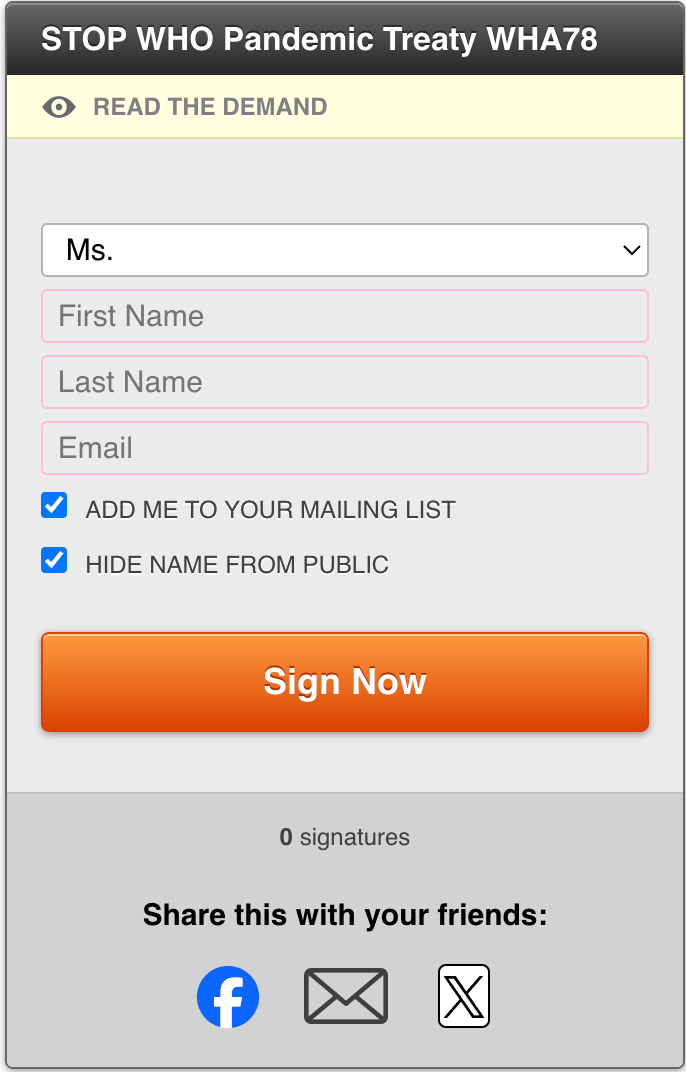

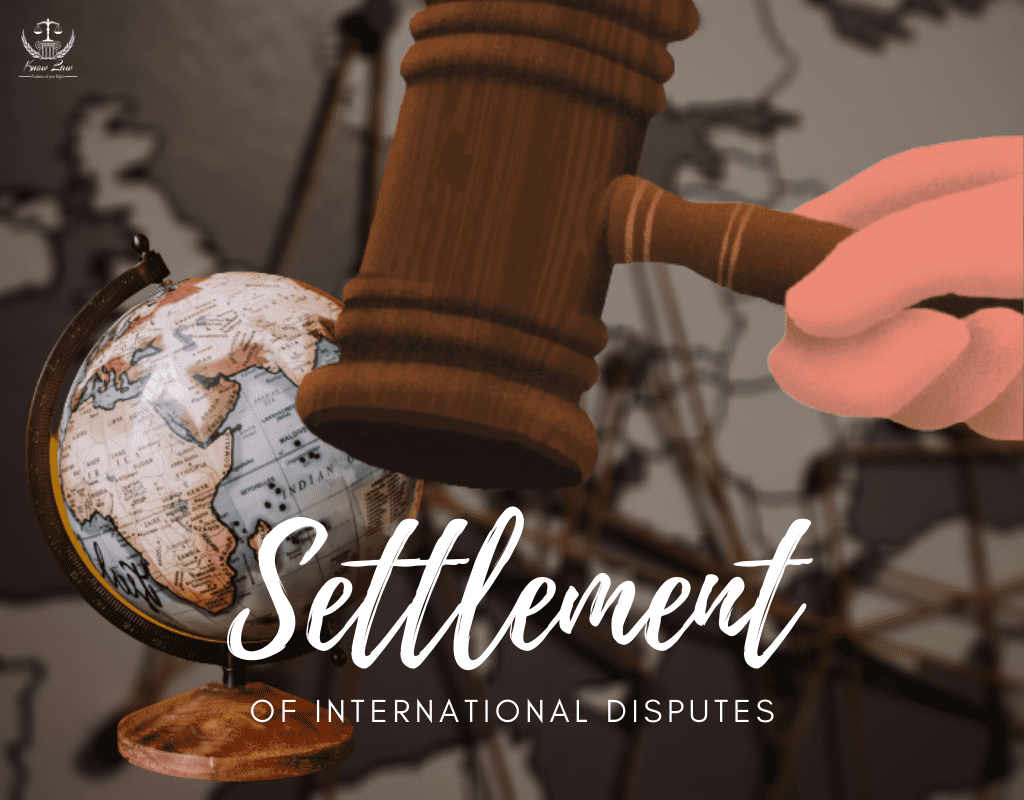
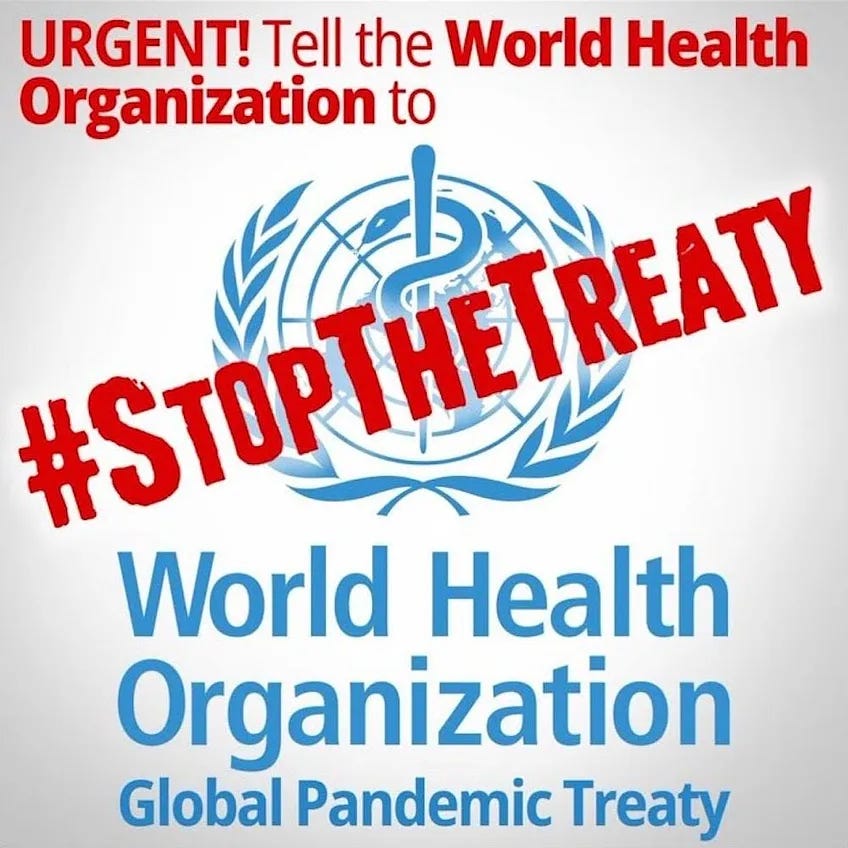
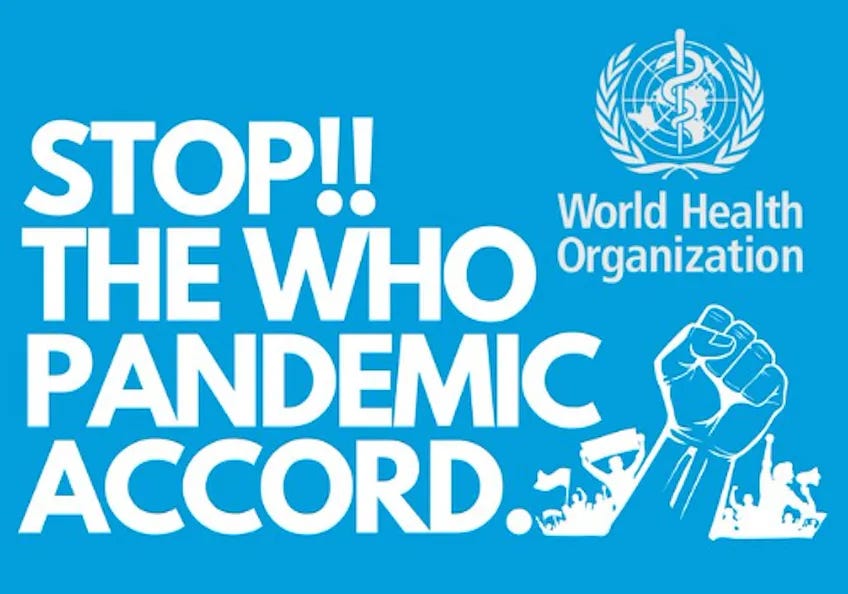

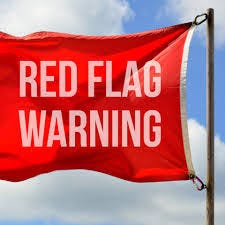
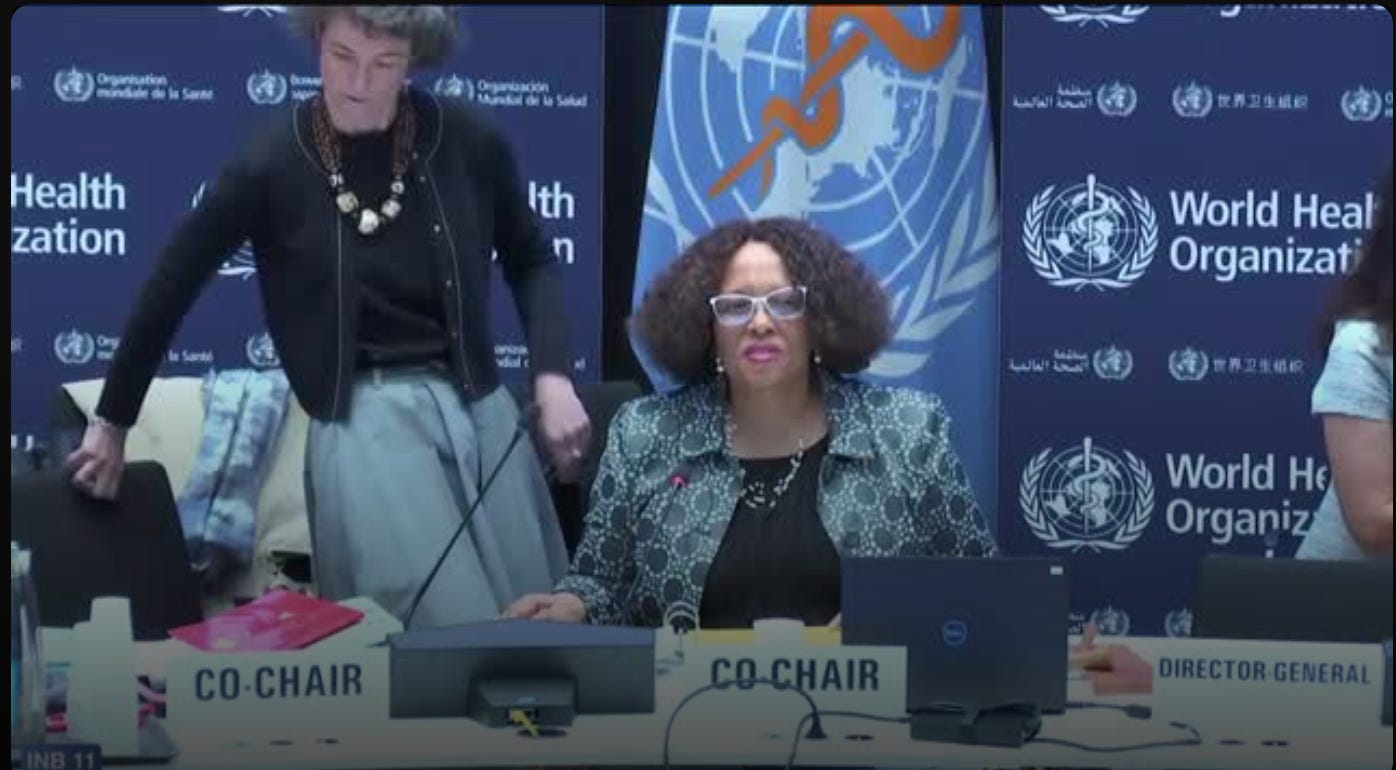



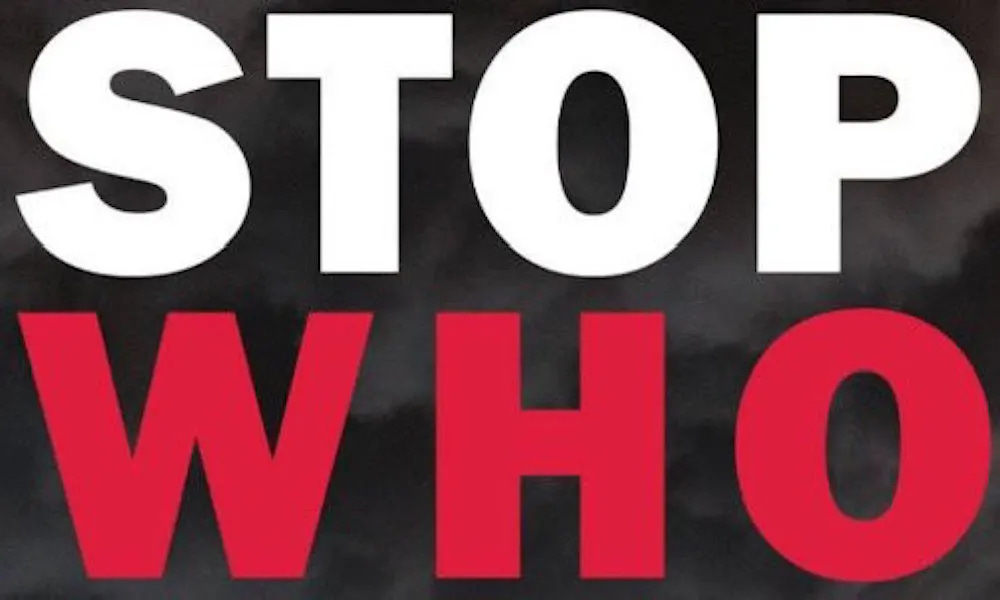

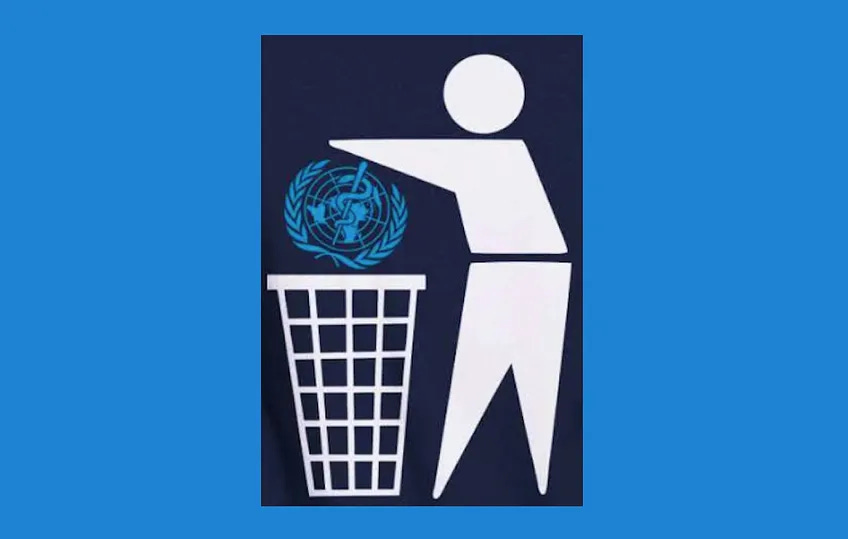

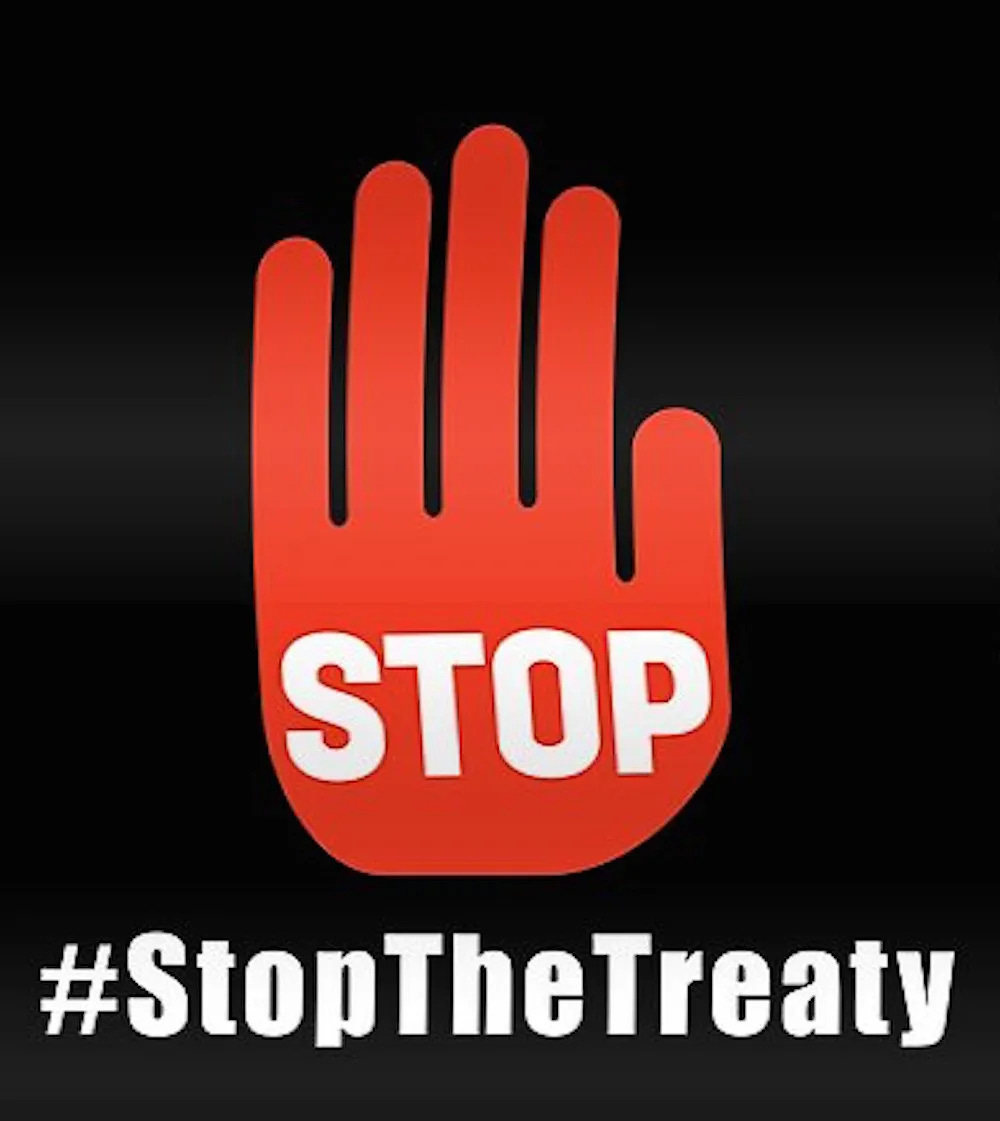
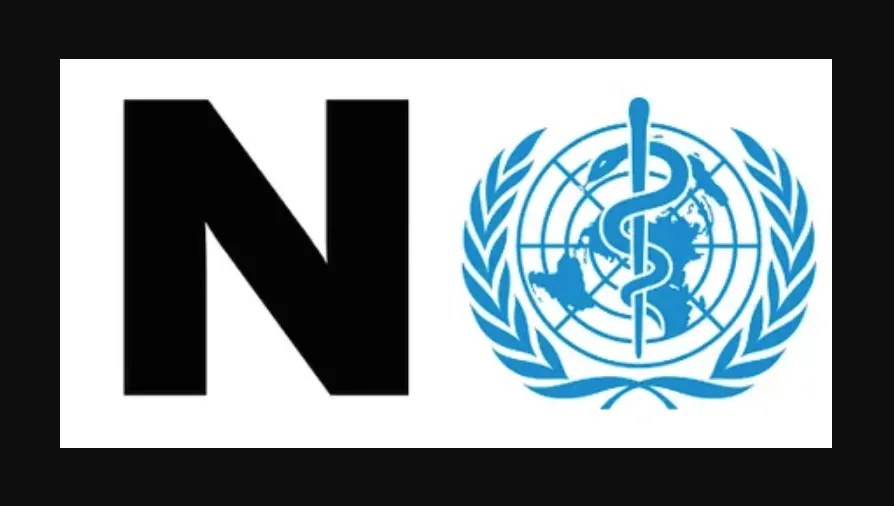


They must push this through before Trump is Inaugurated. You would think there has to be at least a handful of Congressmen who are concerned about the overreach of the WHO but apparently they are either compromised or are oblivious to the dangers of unchecked authority and enactments that endanger our country. Praying for a miracle that this fails!
Undue what they want to do, do not comply, haven't we learned from the last wool pulled over our eyes, do not give evil power again